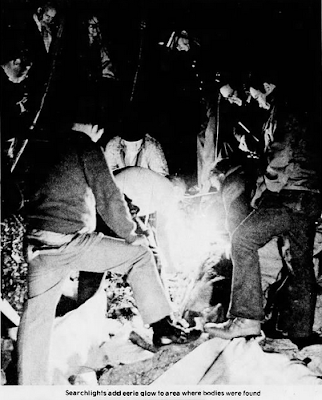The First Execution in Luzerne County
 |
| Battle of Wyoming |
Dozens of criminals have expiated their crimes on the gallows of Luzerne County, but very little is written about Michael Roseberry, who holds the distinction of being the first person executed in Luzerne County. What makes the story of Roseberry's execution in 1779 remarkable is that it was not carried out under state law, but federal military law.
At the beginning of the American Revolution, both British and American forces sought allegiances with the Six Nations of the powerful Iroquois Confederacy. The Mohawk, Cayuga, Seneca and Onandaga nations ultimately sided with the British, while the Oneida and Tuscarora allied themselves with the American revolutionaries. By June of 1778 it seemed inevitable that a major war involving the now-divided Iroquois would soon break out, and the Continental Congress called for a military expedition (led by General Horatio Gates) that would serve as an unexpected "first strike" against the Seneca.
However, the British had also been plotting their own first strike, which transpired before the Gates Expedition could get under way. On July 3, 1778, British Loyalist John Butler led his militia, known as Butler's Rangers, and a party of Iroquois warriors into the Wyoming Valley and decimated the Continental forces of Zebulon Butler. The battle was brief, lasting less than an hour, but when the smoke cleared, 340 of Zebulon Butler's 360 men were dead; the rest were captured. Only one of Butler's Rangers were killed, along with one Indian. The Iroquois took 227 scalps that day, and over 1,000 homes were burned to the ground.
The following summer, General George Washington retaliated by launching the Sullivan Expedition, led by Major General John Sullivan of New Hampshire. Sullivan's orders were to show no mercy, and the Continental Army's scorched earth campaign resulted in the complete destruction of 40 Iroquois villages in upstate New York. Sullivan was so hungry for revenge that he actually ordered his men to slaughter any horse that could not keep up the pace during the army's 450-mile journey from Easton to Elmira. In September of 1779, when the expedition reached Chemung County, Sullivan ordered the slaughter of dozens of his own horses, and local Indians later collected the skulls and lined them up along the trail, thereby giving the town its present name-- Horseheads, New York.
One of the enlisted men who took part in the Sullivan Expedition was a soldier by the name of Michael Roseberry. Although records are scarce, it seems likely that Roseberry was part of the expeditionary force which departed from Easton, Northampton County, on June 18, 1779. Proof of this comes from cemetery records; of the 300-some Roseberrys buried in Pennsylvania (as listed on findagrave.com), more than half are buried in and around Easton, while none are from the Wyoming Valley. Therefore, it stands to reason that Roseberry was a native of Northampton County.
From Easton the main army, numbering 3,500, marched for five days to an encampment in Luzerne County known as the Bullock farm, arriving on June 23. Sullivan's army remained in Luzerne County for over a month awaiting fresh supplies and provisions.
It was during this time that some of the men began to desert Sullivan's army. Upon investigation, it was learned that two men had been responsible for instigating the wave of desertion-- Lawrence Miller and Michael Roseberry. Both men were condemned to death by court martial after a trial in Wilkes-Barre, and Roseberry was hanged on July 1, 1779, on a gallows erected along the riverbank.
As for Miller, he showed a great deal of remorse for his actions, and his wife and children appealed to the military judges to spare his life. Just minutes after Roseberry had been hanged, right when the executioner was adjusting the noose around Miller's neck, General Sullivan himself appeared and announced a pardon. Records indicate that Miller returned to the ranks and remained a faithful soldier for the duration of the campaign.
Unfortunately, it still remains unclear whatever happened to the body of Luzerne County's first victim of the gallows, Michael Roseberry. Was he laid to rest in an unmarked grave somewhere along the banks of the Susquehanna? Or was his body claimed by relatives in Northampton County?
Did you enjoy this article? If so, then pick up a paperback copy of Pennsylvania Oddities, which features even more true stories of the strange from around the Keystone State, as well as more in-depth versions of some of the more spectacular stories shown on this blog. Only $14.95 and free shipping is available!


Comments
Post a Comment